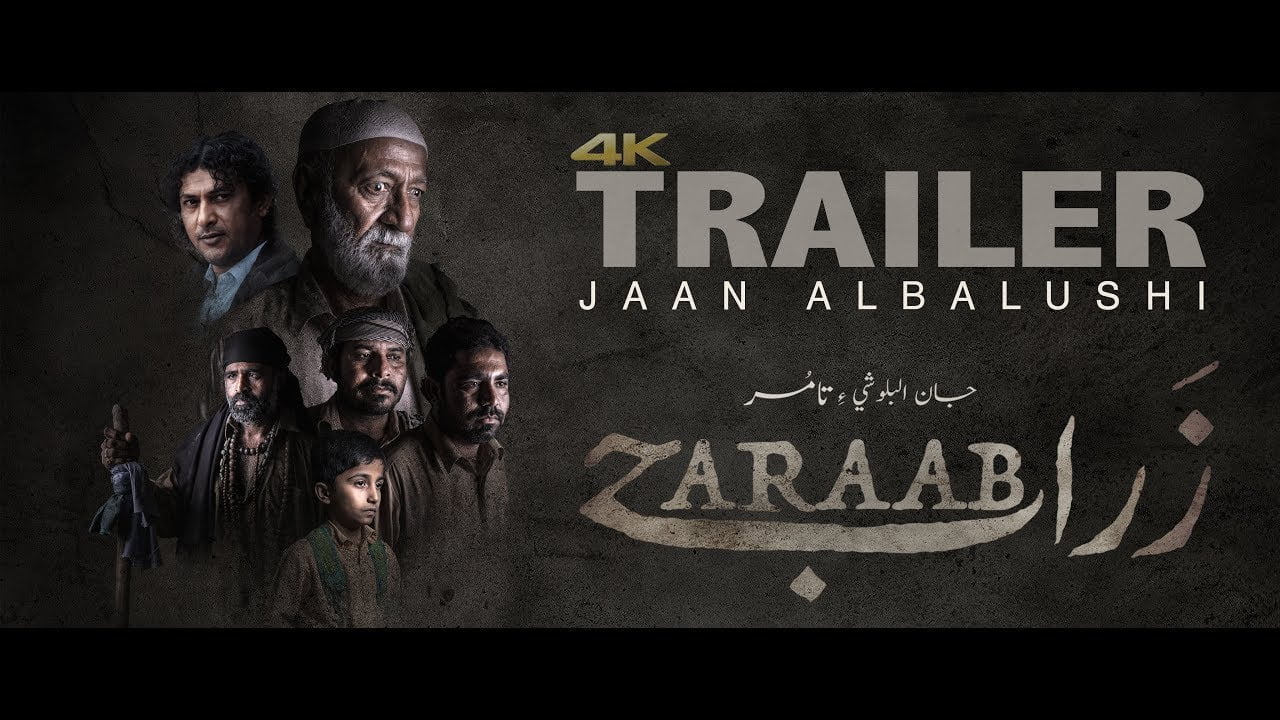Movie: Zaraab – Heat Haze (2018)
Cast: Anwar Sahib Khan, Shah Nawaz Shah, Ehsan Danish and Aziz Azul
Director: Jaan Albalushi
It was almost a decade ago when the Balochi feature film, Balach, was released. There had been full length feature films in Balochi before, but Balach set the standard. Since then, with starry-eyed directors, and amateur actors, equipment and crews, the Balochi film industry has thrived.
Several milestones have been achieved so far – like the first Balochi film with female actors – but none of the films has managed to live up to international standards. With a lack of theaters across Balochistan, films are either limited to free YouTube releases or make-shift cinemas, and filmmakers rarely see any return on their investments.
Jaan Albalushi faced similar challenges in the making of his new crime-drama Zaraab. However, Albalushi has set new standards for Balochi cinema and has delivered a film that can truly stand up against the best in international film-making.
With Zaraab, Jaan Albalushi brings us a cinematic and tragic drama that reminds us of the work of the masters of neorealism, like Vittorio De Sica and Majid Majidi. For the first time, we see professional cinematography, sound editing, lighting and equipment being used in a Balochi film.
Zaraab revolves around a single day in the life of a poor family in Gwadar. Mama (Anwar Sahib Khan) is the patriarch of the family, who works as a porter despite his old age, and his eldest son, Peero (Ehsan Danish), is a disabled widower who takes care of the house while looking after his son – Barkat. Mama’s youngest son Bakshi (Shah Nawaz Shah) is an idealist and dreamer who does not see the value of physical labor and the meager wages that come with it.
The film begins with each character pursuing a different path – earning a modest wage, pursuing an education and attempting to strike it rich. As the story plays out, the audience gets a glimpse into daily life in Balochistan. The fishermen, shipwrights, donkey carriage coachmen and laborers go about their day as a malang seemingly narrates their lives, singing “clouds and seas are in motion, so is life.”
As the film continues, Mama delivers groceries to homes, Peero cleans the house and cooks, Barkat struggles at school while Bakshi pursues a scheme to get rich.
The film’s climax leaves the audience to consider the many challenges that are commonplace for families throughout Balochistan, forcing you to come to terms with the harsh realities of daily life.
Zaraab is a study of how poverty’s effects are felt across generational divide, and Albalushi holds up a mirror to Balochistan’s reality in a way that makes the film a painful watch.
True to Albalushi’s style, this film’s cinematography and sound editing were outstanding. There were a

few scenes where the shots were drawn out a bit too long for aesthetic purposes, but the impressive acting by Anwar Sahib Khan and Shah Nawaz Shah really kept me glued to the screen.
On another note, the self-imposed censorship with the lack of female actors could detract from the appeal for international audiences. While the amateur actors were impressive in their first feature film, the screenwriting left some room for improvement, as it felt as though some of the dialogue lacked depth.
Despite the film’s minor shortcomings, Zaraab is creative, provocative and melancholic. I hope Albalushi continues the work he has done, he truly has the talent to become an icon of Balochi cinema and an internationally acclaimed director.
Sheraz Baloch, an engineer by trade, is a film buff and passionate Liverpool FC supporter. He lives in the US and tweets @ShirazBal.



